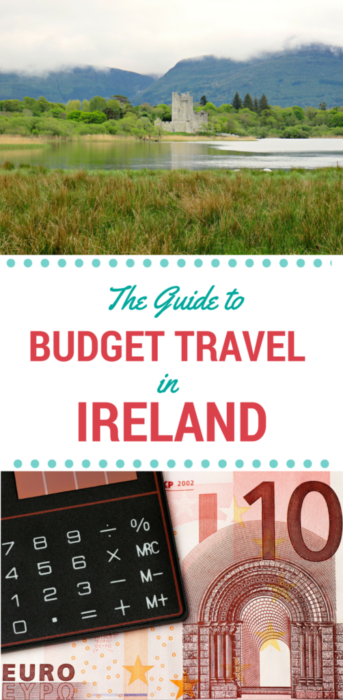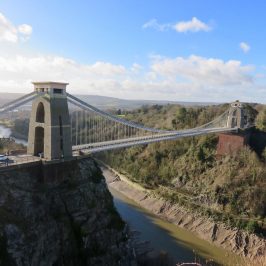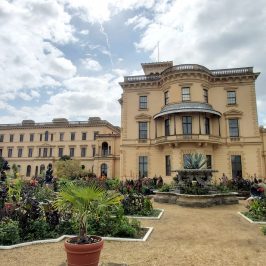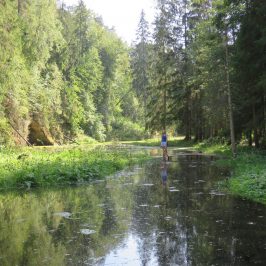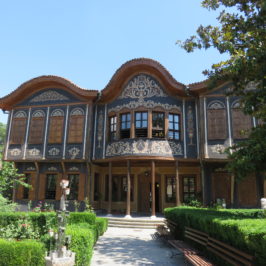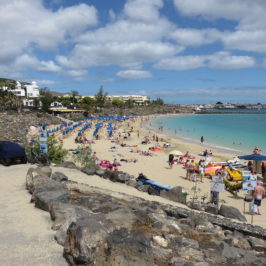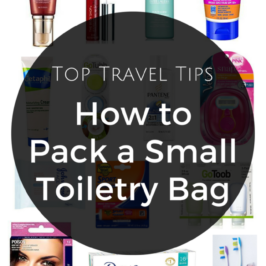This post may contain affiliate links. If you make a purchase through a link, I may receive a small commission, at no cost to you. These commissions help keep this website up and running, and I thank you for your support. Read my full disclosure here.
Being on a budget doesn’t mean that you have to miss out on the joys of travelling. It just means that you need to take a little bit more time when it comes to planning your holiday.
Ireland is not the most expensive destination in Europe, but it’s definitely not the cheapest. But don’t give up hope of visiting Ireland just yet. There is a surprising amount of things that you can do to reduce the cost of your visit and make your dream of visiting Ireland a reality. Follow these top tips for travelling around Ireland on a budget.
Getting to Ireland
1. Travel off Season
It’s much cheaper to travel in spring, autumn or winter. Try and avoid the Irish school holiday periods and the summer peak season (June to August), as it is so much more expensive. Don’t feel disappointed about having to travel outside of summer, as you will enjoy fewer crowds and smaller lines at the popular tourist sites.
Spring is an amazing time to visit Ireland. Everywhere you look, adorable baby animals, including foals, calves and lambs, frolic about, enjoying the warming sun. In spring, you will also see an abundance of colourful wildflowers bursting forth from the roadside and rolling hills.
Travelling around Ireland in autumn provides you with a wonderful backdrop of red and yellow as the leaves change colour. On the other hand, travelling in winter can be a bit grim with cold weather and shorter daylight hours. Some sites may even be closed.
2. Book Your Plane Tickets in Advance and Be Flexible
To save the most money, you will need to be flexible and book in advance. Generally, flying on a Friday, Saturday and Sunday are the most expensive days. Mid-week is usually the cheapest time to fly. Most flight comparison sites also let you set up a price alert to ensure you get the best deal when it becomes available.
3. Reduce Your Luggage
If you are travelling to Ireland on a budget airline that charges for checked-in luggage, then consider taking only carry on, or only paying for the cheapest luggage weight possible. To help you to pack light, follow my post on how to pack an extra light toilet bag and also my guide on what to pack for your Irish vacation.
4. Print Your Own Boarding Pass
These days, most budget airlines will also charge you to print your boarding pass. Avoid this fee by checking in online and printing your own boarding pass. Some airlines even let you use your phone to check in.
Accommodation in Ireland
5. Don’t Stay in Hotels
Hostels and B&Bs are typically cheaper than hotels. Now, before you start cringing at the idea of staying in a hostel, think again. Hostels aren’t just for younger people, you’ll find people of all ages as well as families staying there, and it’s also a great way to meet your fellow travellers. Many hostels offer private and family rooms with ensuites, making them very similar to a hotel room anyway.
Keep accommodation costs down by following these tips:
- Some hostels and B&Bs may have the option of a private or shared bathroom. Choosing a shared bathroom will save you money.
- Take advantage of free breakfasts offered by your hostel or B&B.
- Some B&Bs charge extra for breakfast, so consider whether its worth the extra expense or whether you can arrange your own breakfast for cheaper.
- If you plan to stay in locations a bit longer than a few nights and there is a group of you, then it may be cheaper to rent an apartment or cottage.

